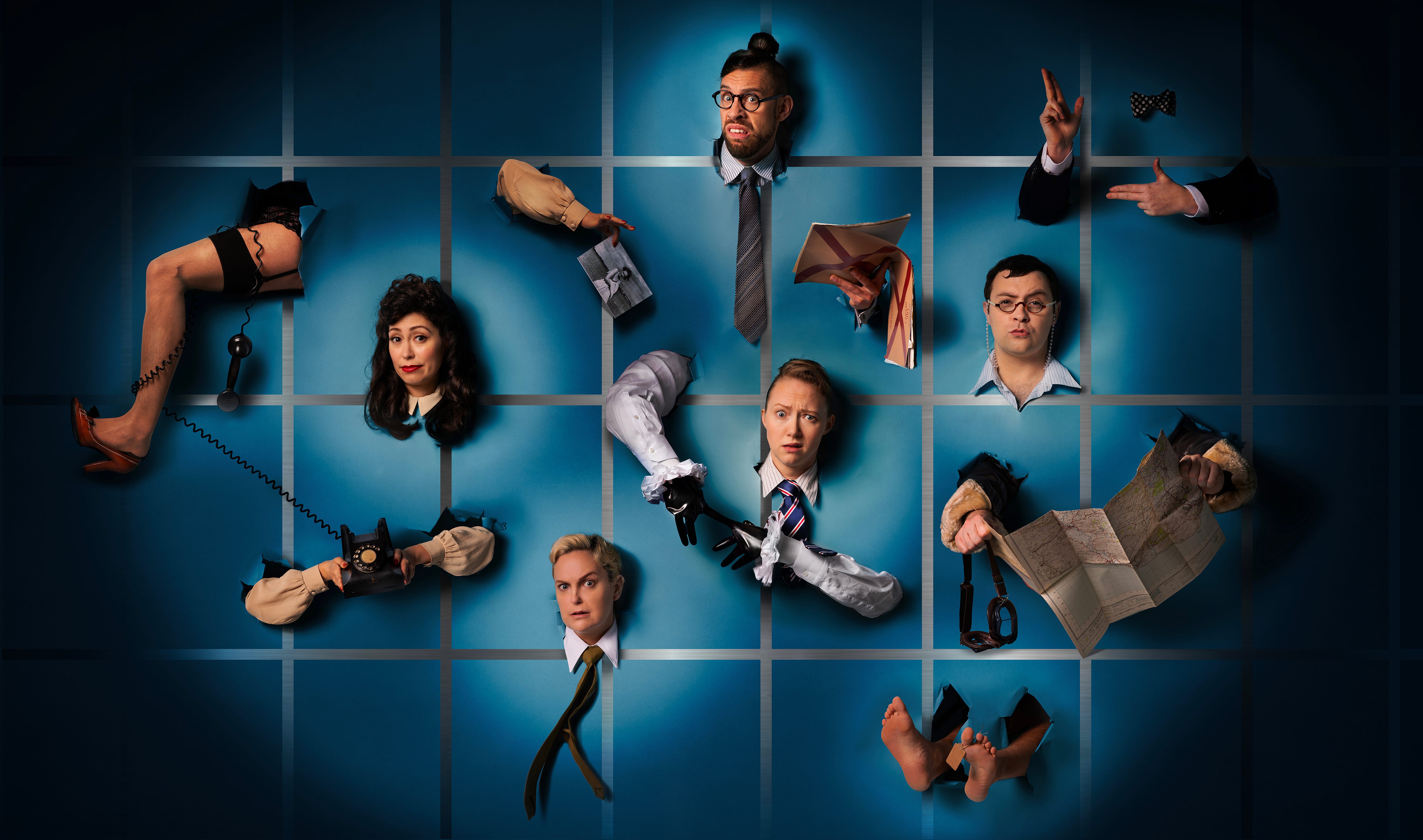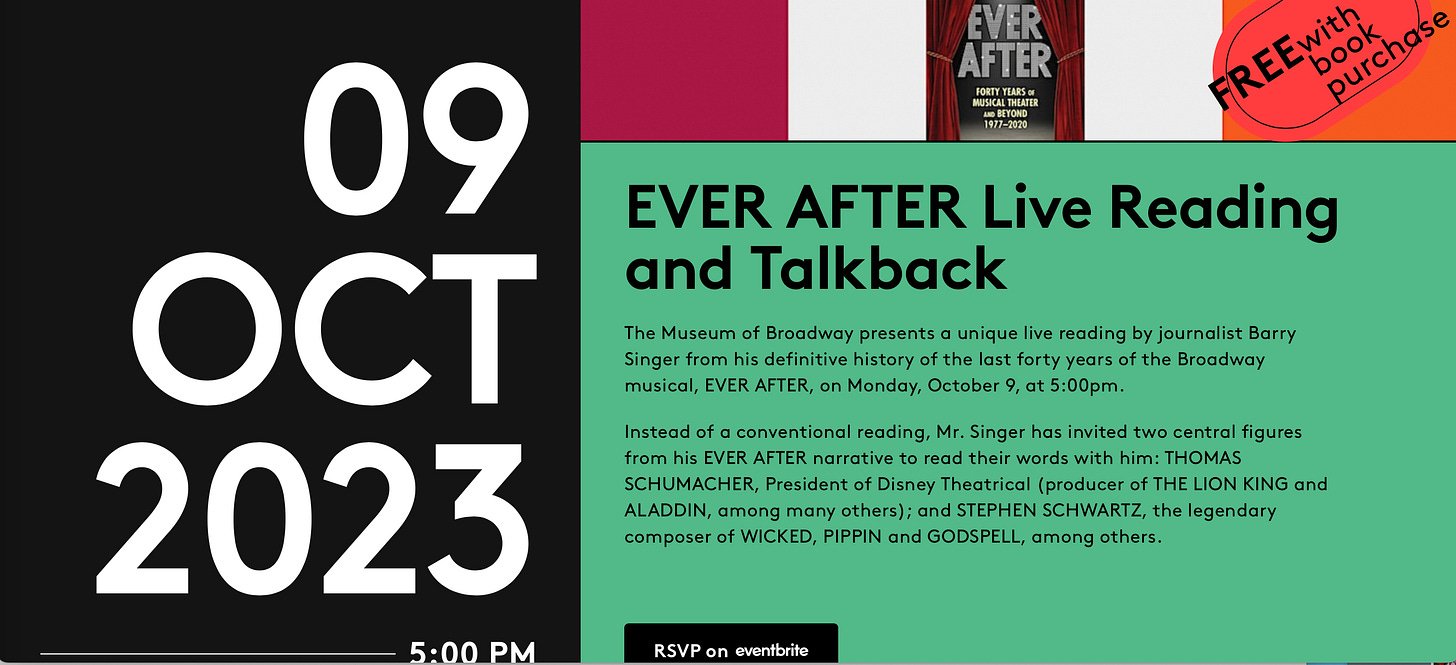London Calling: "OPERATION MINCEMEAT"
Just back from my first trip to London since pre-pandemic days and all I can think about is Operation Mincemeat. My ostensible reason for flying over was the first-ever Chartwell Literature Festival at Winston Churchill’s National Trust-preserved home in the Kent countryside. My bookstore, Chartwell Booksellers, is named for the place and my connection to it, of course, runs deep. The ensuing weekend of author talks on a tapestry of topics derived from recent or forthcoming new books (most only tangentially related to Churchill, if at all) was entertaining, illuminating and largely outdoors. The weather was gorgeous.
But Operation Mincemeat!
I caught the train into London on Monday morning to grab just a couple of days of theater. The revival of Guys and Dolls I’d heard so much about, and scored tickets for in advance, was cancelled that day by “illness in the cast” (which I took to mean Covid).
Operation Mincemeat I’d also heard rumblings about before leaving New York. I was curious to see it, both for the Churchillian resonances and for the show’s flat-out absurd unlikeliness. I well knew about the non-musical “Operation Mincemeat;” it had been a real, though utterly invented, Churchill-shepherded World War II espionage operation involving a dead body dropped into the sea, off Spain, weighted with an invented identity as a downed RAF pilot shackled to a briefcase containing falsified Allied invasion plans pointing toward Greece and Sardinia. Churchill’s ultra-secret MI5 had conceived of this ruse in advance of the actual Allied invasion of Sicily in 1943, hoping to divert Hitler’s troops away from Italy. No one really thought the plan would work, and it more or less didn’t, yet did, in the end, for reasons never entirely understood.
Out of this mission ridiculous, the musical Operation Mincemeat was born.
It, too, has seemingly endless backstory. Straight-up: The show evolved in various Fringe theaters around London over the last five years as the creation of a kind of commune of young writer/performers, comprising David Cumming, Felix Hagan, Natasha Hodgson and Zoë Roberts, who — alerted by the excellent 2010 book, Operation Mincemeat, by Ben Macintyre, and subsequent 2021 film — jointly concocted a musical Mincemeat — script, music and lyrics — under the group name: SpitLip, and (with the exception of the composer, Mr. Hagan) perform it themselves, still. Brilliantly.
Propelled by increasingly great reviews, their musical made its way this year to the Fortune Theatre in London’s West End, produced by Avalon, a big-time entity, that has polished Operation Mincemeat via an experienced director, Robert Hastie, and a smart choreographer, Jenny Arnold, but left well enough alone in the improvisational esprit that makes Operation Mincemeat feel made up on the spot.
It isn’t remotely, of course, the show is sensationally crafted and timed to an almost military precision. It is also rib-shatteringly funny, deliriously satirical, at times gorgeously scored and sung, and is, without, question, the most original new musical that I’ve seen in a long time. It works entirely on its own terms, thumbing its nose at musical theater tradition (sometimes overtly, from the stage), yet managing to embrace the essence of musical theater, and its own outlandish story, with heartfelt, sincere, humanity.
The SpitLip trio prove to be a brilliant ensemble of singer/dancer/comedic actors — with their star, by far, the long-limbed, ever out-on-a-limb, Mr. Cumming, who is staggeringly gifted. They are abetted by Claire Marie Hall and Jak Malone, smashingly effective as ever so many characters — the lot of them real people who contributed to the real Operation Mincemeat, including (no kidding) Ian Fleming (played by Ms. Roberts), who was an actual, fabulist yarn-spinning member of MI5.
Most of the male roles are played by women and most of the female roles by... yeah, you got it. The cross-dressing characterizations are cunningly executed, precise and literal; the acting is so good, it is possible to even forget gender altogether in Operation Mincemeat, except when it is explicitly being questioned, which is often. The company inhabits and discards characters in a whirlwind of brazen costume changes and discreet shifts in posture, accent and attitude. Imagine the vintage burlesque of Helzapoppin’ crossed with the esteemed, shape-shifting RSC Nicholas Nickelby of the 1980s. Now toss this facile Helzapoppin’/Nickelby allusion; it was just my metaphorical attempt to try and capture what goes on onstage in Operation Mincemeat; which is impossible. And unnecessary. The show simply cries out to be seen.
I expect that it will be, here in NYC, sooner than later. I certainly hope so. I was personally struck by one eerie image waiting outside the gem-scaled Fortune Theater, pre-curtain, in a cue of wildly expectant, mainly young people — many pierced, dyed and/or tattooed, as any young person worth their Instagram account would be today — all looking utterly gorgeous and damned eager to get in. Just across the narrow street, to our immediate right, loomed the Theatre Royal, Drury Lane, one of London’s largest and most prestigious theatrical palaces, its marquee dark, its sidewalk barren, as stagehands loaded Frozen out into waiting vans; the Disney musical having recently closed due to lack of business.
And, well…there you have it.
I’m not saying Operation Mincemeat is the future of musical theater. But I’m also not saying it isn’t. The tartness of its tone, the acuteness of its wit, the shameless iconoclasm and non-conformity of its DNA, make me long for more like it. Plus, the modest, shoe-string-budget of its majesty gives me hope for the future of musical theater as a non-tourist extravaganza of the imagination.
I mean, you gotta have hope.



